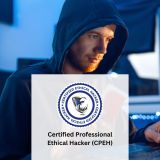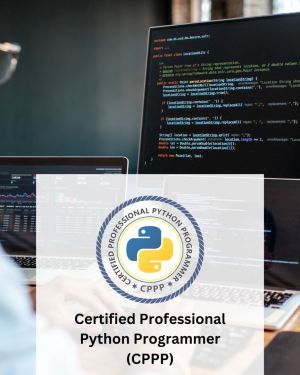Course Overview
The Certified Forensic Analyst (CFA) is for professionals working in the information security, computer forensics, and incident response fields.
The certification focuses on core skills required to collect and analyze data from Windows and Linux computer systems.
Another option for a career as a computer forensic analyst is within the business sector and involves finance management, economics and market analysis. Day-to-Day Job Duties of a Computer Forensic Analyst The job duties of a computer forensic analyst will vary, depending on the area chosen to work in. Most often, a computer forensic analyst will find their job requirements to include recovering deleted emails, recovering data that has been deleted or encrypted, and uncovering passwords. The data that is recovered through these techniques will then be used by law enforcement officials to help with ongoing investigations. Depending on the type of evidence that is recovered, the data may also be used as evidence in court. Career Opportunities There are a number of options available for computer forensic analysts. Large companies employ many computer forensic analysts in order to keep their computer files secure. Law enforcement jobs for computer forensic analysts involve working directly with police officers and detectives to help solve cyber crimes. Many people choose to work as a consult
The GAQM certifies that candidates have the knowledge, skills, and ability to conduct formal incident investigations and handle advanced incident handling scenarios, including internal and external data breach intrusions, advanced persistent threats, anti-forensic techniques used by attackers, and complex digital forensic cases.
The Life of a Computer Forensic Analyst
The career of computer forensic analyst comes with many titles such as, digital forensic examiner, forensic computer examiner, forensic computer analyst and computer forensic detective. Regardless of title, these professionals are in charge of the proper handling of all digital media involved in criminal cases. Another option for a career as a computer forensic analyst is within the business sector and involves finance management, economics and market analysis.
Day-to-Day Job Duties of a Computer Forensic Analyst
The job duties of a computer forensic analyst will vary, depending on the area chosen to work in. Most often, a computer forensic analyst will find their job requirements to include recovering deleted emails, recovering data that has been deleted or encrypted, and uncovering passwords. The data that is recovered through these techniques will then be used by law enforcement officials to help with ongoing investigations. Depending on the type of evidence that is recovered, the data may also be used as evidence in court.
Career Opportunities
There are a number of options available for computer forensic analysts. Large companies employ many computer forensic analysts in order to keep their computer files secure. Law enforcement jobs for computer forensic analysts involve working directly with police officers and detectives to help solve cybercrimes. Many people choose to work as a consultant and bill different agencies for the time spent on each specific problem they are employed to solve.
Salary Outlook
Salaries vary greatly based on position. The average salary for a computer forensic professional is $36,640 per year, according to the United States Bureau of Statistics. Those working in the private sector tend to earn a higher salary than those individuals working in the public sector. Although those choosing to work in the public sector usually find a set pay scale along with excellent benefits.
The work of a computer forensic analyst used to be done by police officers. However, with the increased use of technology, there has become a need for people specifically trained in the area of computer forensics.
Exam information
- The exam comprises 100 Multiple Choice Questions out of which the candidate needs to score 65% (65 out of 100 correct) to pass the exam.
- Open Book Exam
- The Exam can be taken anywhere and anytime, you only need an Internet Connectivity and a Browser
- An “open book exam” is a test that allows you to bring the text or material you have been studying.
- The total duration of the exam is 1 hour 30 Minutes (90 Minutes).
- If a candidate does not pass the exam in the second (2nd) attempt, the candidate must wait for a period of at least fourteen (14) calendar days from the date of their attempt to retake the exam for the third (3rd) time or any subsequent time.
- The exam can be taken any number of times.
- The Certified Forensic Analyst (CFA)™ Certificate is valid for life








